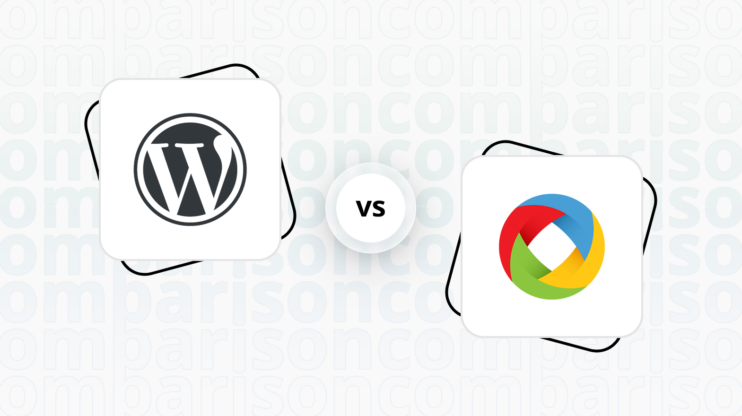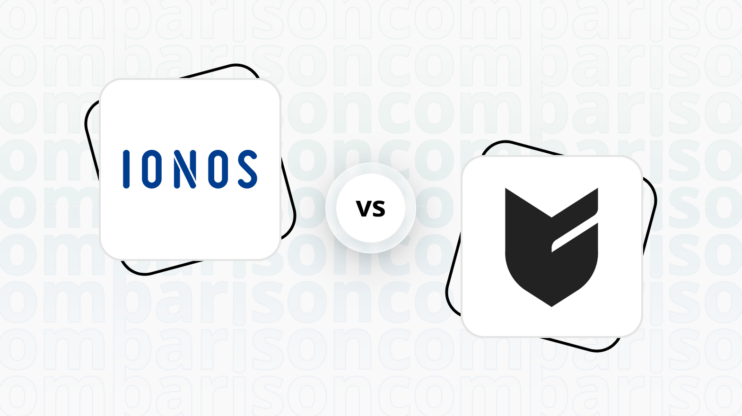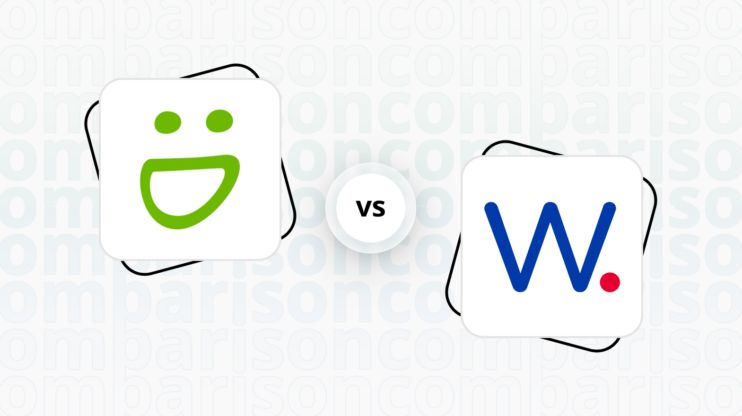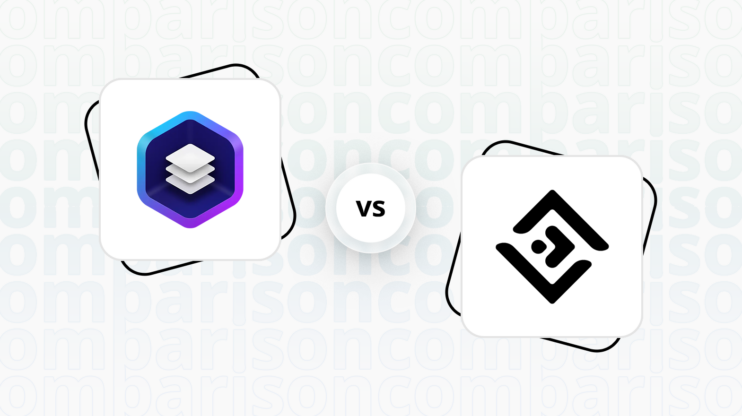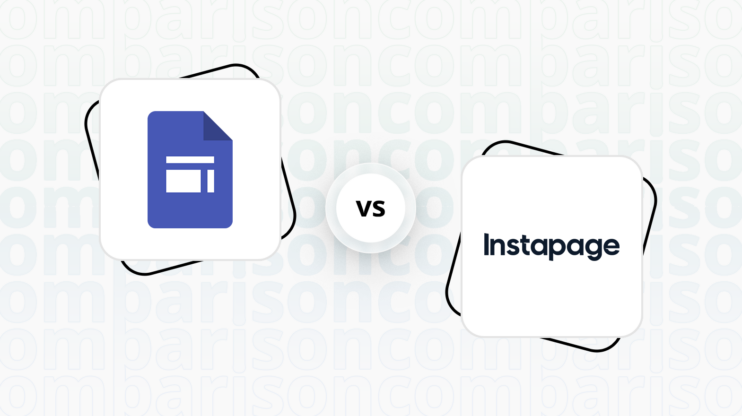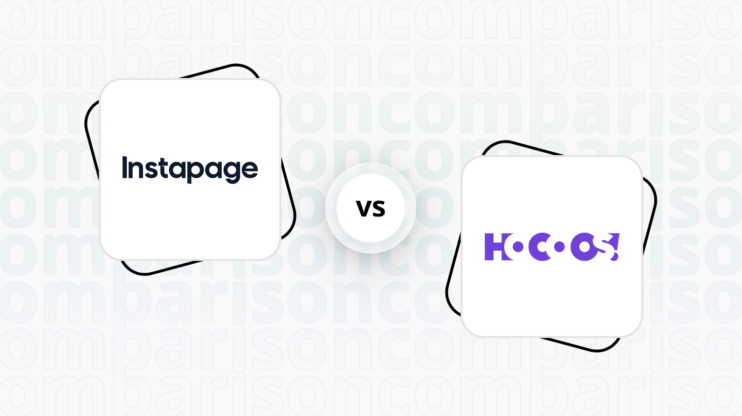Final verdict
Siter.io vs Blocs: Both platforms offer unique strengths, but they cater to different user needs and preferences.
-
Siter.io (Overall Grade: 5.1/10)
is designed to simplify website creation with its drag-and-drop interface and freehand design tool. It is particularly strong in design functionalities, offering a range of templates and integration with Figma. However, it falls short in ecommerce capabilities and lacks advanced AI features. Siter.io is ideal for users who prioritize design flexibility and collaboration, making it a good choice for teams and designers. -
Blocs (Overall Grade: 5.8/10)
is a powerful website builder for Mac users, known for its intuitive visual interface and pre-designed blocks. It excels in ease of use, ecommerce integration, and AI capabilities, making it suitable for users who want to create professional websites without coding. Blocs also offers comprehensive learning resources and strong marketing features, making it a versatile choice for both beginners and advanced users.

|

|
|
|---|---|---|
|
Design functionalities & templates |
7.5 |
7.5 |
|
Ease of use |
8.3 |
8.7 |
|
Ecommerce |
3.4 |
7.0 |
|
Website Editors |
7.8 |
7.5 |
|
Product testing options |
8.2 |
7.0 |
|
Price |
8.1 |
9.0 |
|
Hosting quality |
3.9 |
0 |
|
Website speed optimization |
1.5 |
5.2 |
|
Plugins and integrations |
5.5 |
6.8 |
|
Marketing features |
2.6 |
6.9 |
|
Customer support |
4.1 |
5.1 |
|
Security |
6.8 |
0.0 |
|
AI capabilities |
0.0 |
5.4 |
|
User Management |
7.1 |
1.4 |
Best for ecommerce
 3.4
3.4
 7.0
7.0
Verdict
: Blocs is the superior choice for ecommerce, offering more robust features and better integration with leading ecommerce service providers compared to Siter.io.
-
Siter.io
: While Siter.io provides basic ecommerce functionalities such as a shopping cart, checkout, and purchase button, it is primarily focused on UI design capabilities. Its ecommerce features are limited, making it less suitable for businesses looking to scale their online stores. Siter.io’s strength lies in its design flexibility, especially with its built-in Figma integration, but it falls short in comprehensive ecommerce support. -
Blocs
: Blocs outperforms Siter.io in the ecommerce sector with a score of 7.0. It supports ecommerce through integration with leading service providers like Stripe, Snipcart, Gumroad, and Ecwid, enabling features such as buy buttons, checkouts, and complete storefronts. Blocs also offers a range of ecommerce-specific templates, making it easier to launch optimized online stores. Its flexibility and comprehensive ecommerce features make it a better choice for businesses aiming for a robust online presence.
Best for informational & business websites
 7.2
7.2
 7.5
7.5
Verdict
: Blocs slightly edges out Siter.io for informational and business websites, thanks to its user-friendly interface and extensive design options.
-
Siter.io
: Siter.io is a versatile website builder with a drag-and-drop interface and unique freehand design tool. It offers a range of templates and design elements, making it easy for users without coding knowledge to create professional-looking websites. Siter.io is particularly strong in its integration with Figma, SEO tools, and responsive design for mobile devices. However, it scores slightly lower than Blocs in terms of ease of use and website speed optimization. -
Blocs
: Blocs is a powerful website builder designed specifically for Mac users. It allows users to create modern, responsive websites without writing code, thanks to its intuitive visual interface and pre-designed blocks. Blocs offers a wide range of features, including responsive design, pre-made templates, and integration with popular web standards and tools. It scores higher in ease of use and website speed optimization, making it an ideal choice for designers and developers looking to create professional websites with minimal effort. When comparing Siter.io vs Blocs, Blocs stands out for its user-friendly interface and extensive design options.
Detailed comparison
Design functionalities & templates
Design FunctionalitiesRepresents how well each platform allows for creative design and customization of websites.Score Components:
- Template Variety (30%): Range and quality of design templates.
- Customization (30%): Flexibility and options for design alterations.
- User Interface (20%): Ease and intuitiveness of the design process.
- Responsiveness (10%): Adaptability to different devices and screen sizes.
- Innovation (10%): Unique design features and tools.
 7.5
7.5
 7.5
7.5
Winner: Tie.
Both Siter.io and Blocs offer robust design functionalities and templates, making it easy for users to create and customize their websites.
Siter.io includes a handful of customizable templates for various website types, such as landing pages, portfolios, and e-commerce sites, ensuring users can start with a solid foundation and tailor each site to their needs. However, the limited number of templates is compensated with a UI which is very similar to design tools like Figma and AdobeXD. Additionally Siter.io has built in Figma plugin, which helps to export Figma designs directly to Siter.io platform, and make changes and tweaks right on Siter.io.
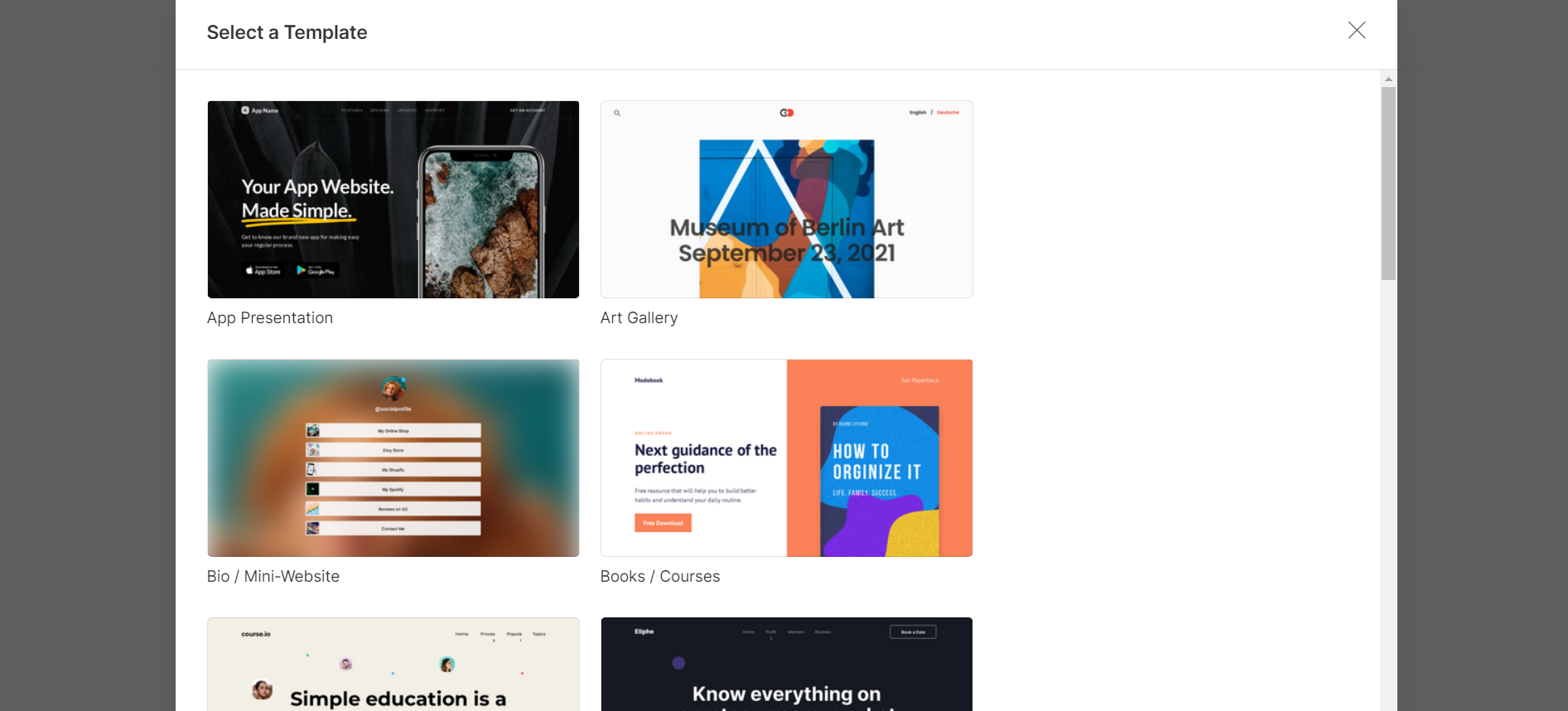

On the other hand, Blocs website builder offers a vast selection of design templates, boasting over 36 layouts for various website types, including business, e-commerce, personal portfolios, and photography, catering to a wide range of user needs. These templates are designed to be responsive, ensuring optimal display across different devices, from desktops to smartphones. Furthermore, the templates are available for purchase in packages, with pricing dependent on the number of websites intended for creation, and are crafted for easy customization, enabling users without coding expertise to quickly develop professional-looking websites.
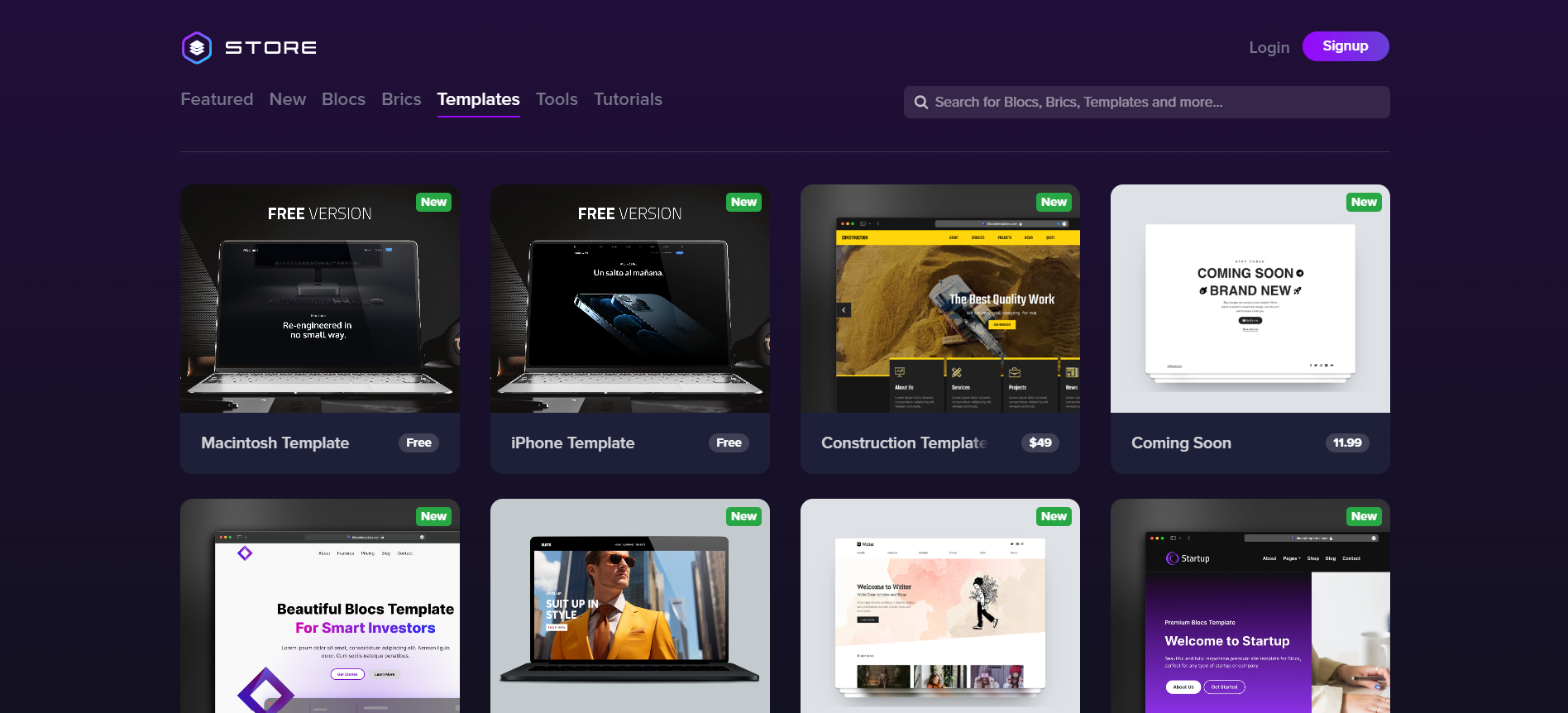
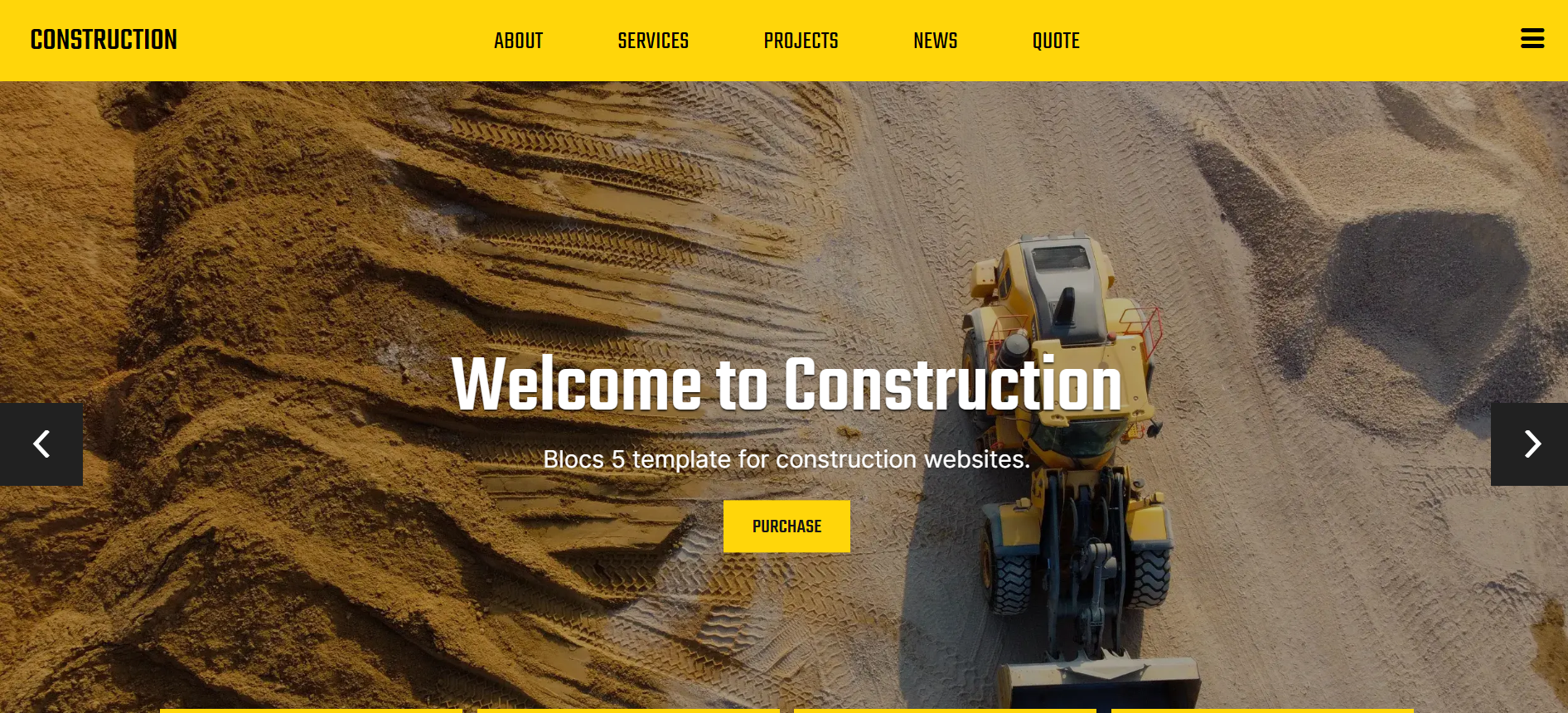
Get a head start on website creation with AI
Create a custom website tailored to your business needs 10X faster with 10Web AI Website Builder!
Ease of use
Ease of useReflects the platform’s overall user-friendliness.Score
Components:
- Learning curve (40%): Quickness and ease of getting started.
- Interface design (30%): Simplicity and intuitiveness of layout.
- User guidance (20%): Quality of tutorials and support.
- Flexibility (10%): Adaptability to various user skills.
 8.3
8.3
 8.7
8.7
🏆 Winner: Blocs
. With a score of 8.7, Blocs edges out Siter.io (8.3) in terms of ease of use. Both platforms offer user-friendly interfaces and features, but Blocs is particularly appreciated by Mac users for its intuitive drag-and-drop interface and wide range of features that facilitate the creation of visually appealing websites without the need for coding.
Learning Resources
🏆 Winner: Blocs
. Both platforms offer extensive learning resources that cater to both beginners and advanced users. However, Blocs goes a step further with its Blocs Academy and Blocs Master, which offer a wealth of tutorials and video courses.
For ecommerce
EcommerceMeasures the platform’s effectiveness in supporting online business activities.Score Components:
- Ecommerce themes and templates (20%): Variety and design of templates.
- Product management (25%): Ease of managing and organizing products.
- Payment options (25%): Variety and convenience of payment methods.
- Ecommerce features (20%): Features for managing an ecommerce store.
- Integration (10%): Compatibility with external e-commerce tools and services.
 3.4
3.4
 7.0
7.0
When it comes to ecommerce, Blocs outperforms Siter.io with a score of 7.0 compared to Siter.io’s 3.4. While Siter.io does offer basic ecommerce features, it is primarily focused on UI design capabilities. On the other hand, Blocs supports ecommerce through integration with leading service providers, enabling features such as buy buttons, checkouts, and complete storefronts with services like Ecwid, Stripe, Snipcart, Paddle, and Gumroad.

|

|
|
|---|---|---|
|
Ecommerce themes and templates |
4.5 |
7.8 |
|
Product page customization |
6.5 |
6.5 |
|
Payment processing and commissions |
3.0 |
7.0 |
|
POS capabilities |
2.0 |
0.0 |
|
Payment gateways |
3.5 |
7.5 |
|
Product numbers |
2.5 |
6.0 |
|
Additional ecommerce features |
3.0 |
7.2 |
Siter.io ecommerce features:
- Shopping cart
- Checkout
- Purchase button
Blocs ecommerce features:
- Stripe integration
- Snipcart shopping cart integration
- Gumroad integration
- Ecwid integration
Ecommerce themes & templates
Siter.io has only a few ecommerce specific templates, however its built-in Figma integration enables the use of a variety of third-party website templates designed in Figma to create a fully functional website directly on the platform. Blocs, on the other hand, provides a range of ecommerce-specific templates, allowing users to quickly launch optimized online stores or business platforms. These premium templates are designed to be fast, visually appealing, and SEO-friendly, ensuring websites look great on all devices and load quickly.
Product page customization
Siter.io prioritizes its design capabilities, offering a wide range of customization options that are only limited by the user’s skill level. Blocs primarily offers ecommerce features through third-party ecommerce platforms such as Ecwid, so the product page customization possibilities vary depending on which platform is integrated.
Payment processing
Siter.io primarily serves as a website design tool rather than a dedicated ecommerce platform. While it does allow for the creation of ecommerce websites, its functionality for integrating payment gateways is quite limited. However, it does support custom code injection, enabling users to integrate third-party payment widgets like PayPal or Stripe. Blocs supports ecommerce through integrations with third-party ecommerce providers, suggesting flexibility in the use of various payment gateways. Blocs does not charge transaction fees or commissions, however such fees may be charged by the payment gateways or e-commerce platforms themselves. Additionally, Blocs does not offer POS capabilities.
Website Editors
Website EditorsEvaluates the platforms’ website building and editing capabilities.Score Components:
- Customization tools (40%): Range and power of editing features.
- Editor usability (30%): User experience within the editor.
- Design flexibility (20%): Freedom in layout and design changes.
- Update and maintenance ease (10%): Simplicity of updating and maintaining the site.
 7.8
7.8
 7.5
7.5
🏆
Winner: Siter.io
. Siter.io, with a score of 7.8, offers an editor designed to empower users with the ability to create websites seamlessly without any coding skills. It features an intuitive interface, real-time collaboration, and Figma integration, enhancing productivity and creativity for designers and teams. The editor supports inserting custom code for additional functionality, accessing thousands of free icons, and integrating with Unsplash for high-quality, royalty-free photos.
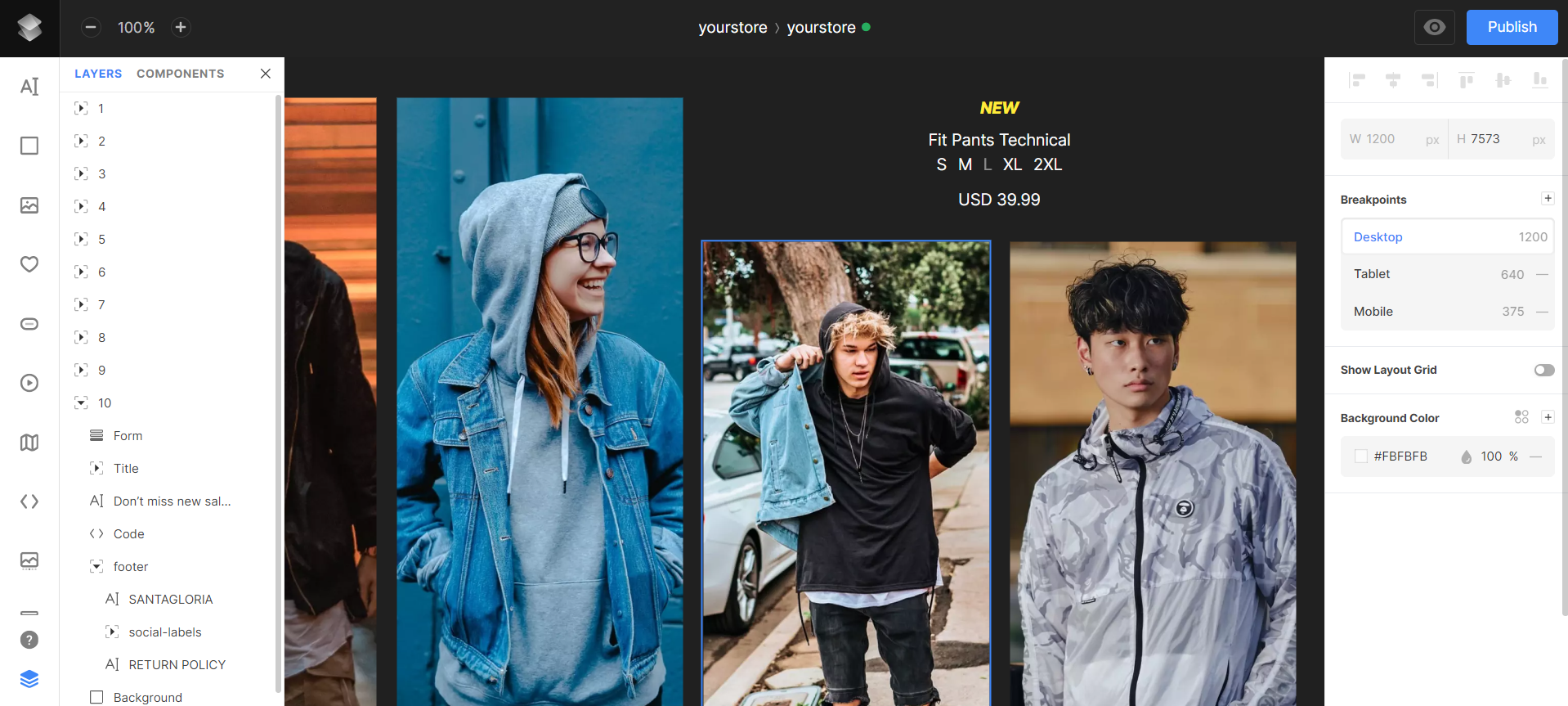
Blocs, scoring 7.5, offers a user-friendly web design tool that enables the creation of modern, responsive websites without needing to code. It utilizes a block-based interface with drag-and-drop functionality, making web design accessible to designers and creatives without technical backgrounds. The app offers a variety of pre-designed blocks, integration options, and SEO tools to streamline the website creation process.
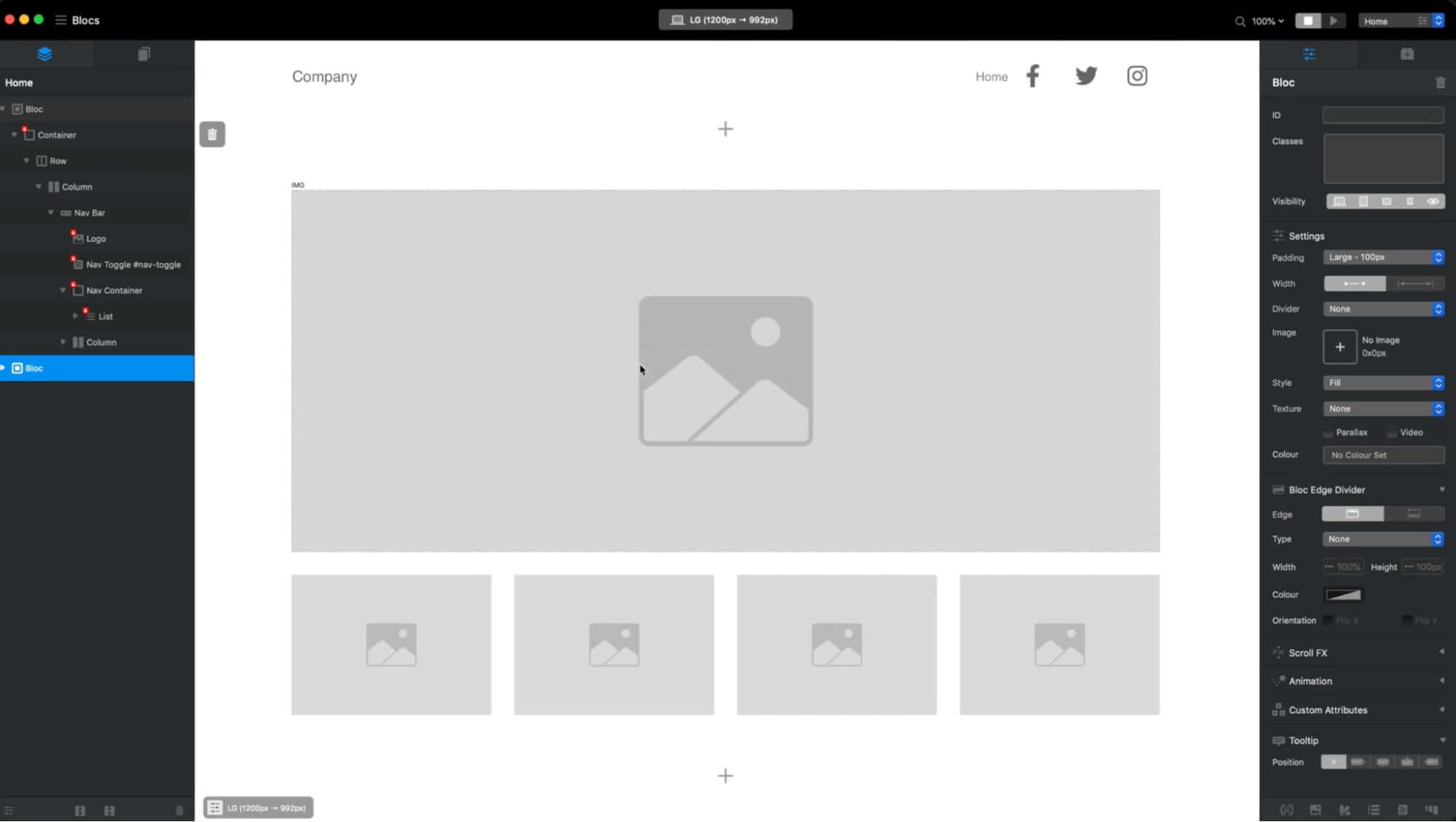
Mobile editor/app
 0
0
 8.5
8.5
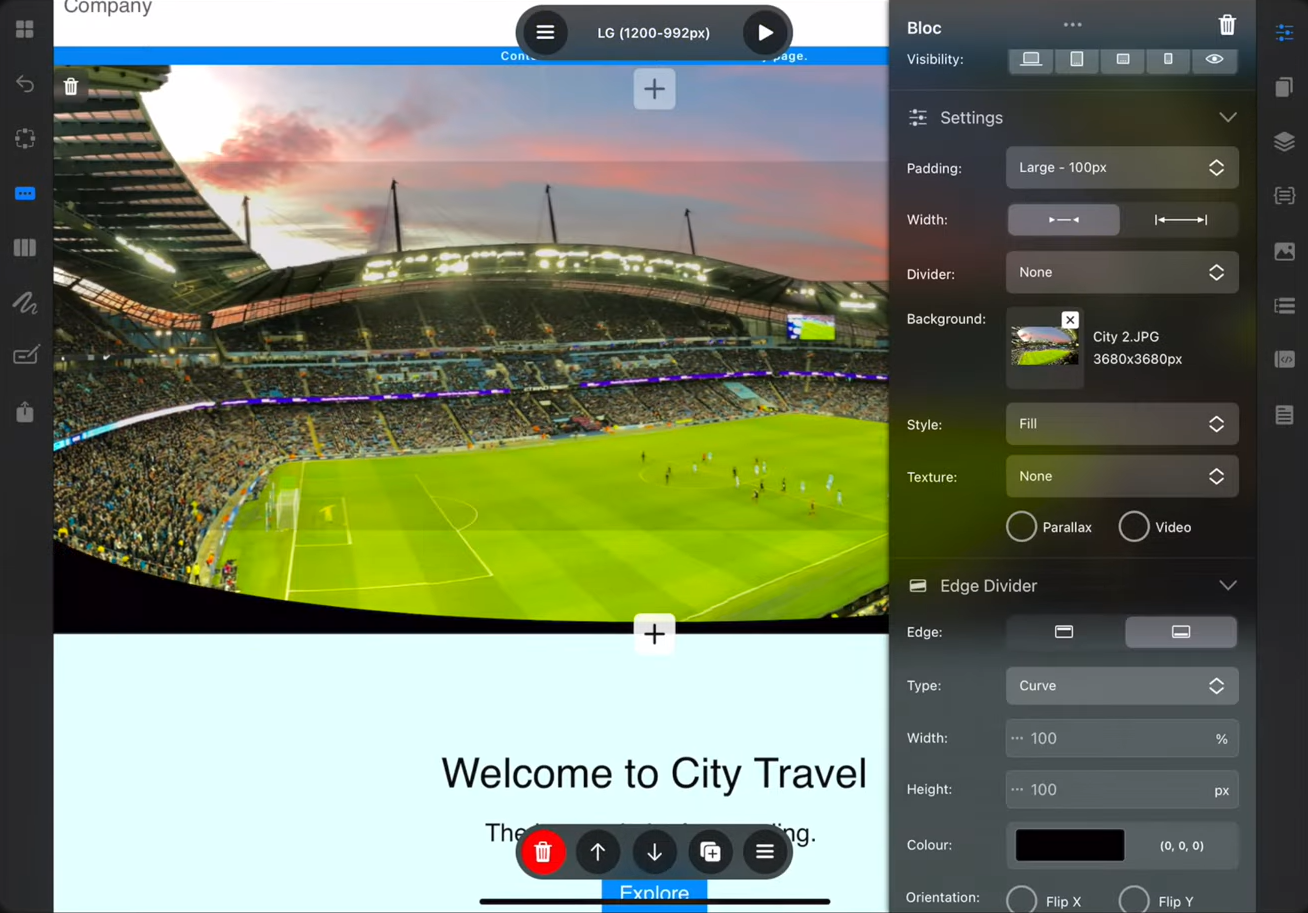
🏆
Winner: Blocs
. Siter.io does not have a dedicated mobile editor app, which can limit the flexibility and convenience for users who prefer to make changes to their website on the go. On the other hand, Blocs offers a mobile editor app specifically designed for the iPad. This app provides a touch-first interface and includes all the essential features needed to create various types of websites. This offers a flexible and efficient solution for building professional and beautiful websites on an iPad. Therefore, Blocs is the clear winner in this category due to its dedicated mobile editor app.
Product testing options
Product Testing OptionsAssesses the options for trying out platform features before commitment.Score Components:
- Trial quality (40%): Extent and usefulness of the trial or free version.
- Feature accessibility (30%): How many features are available to test.
- Trial duration (20%): Length of the trial period.
- Ease of transition (10%): Smoothness of moving from trial to paid plans.
 8.2
8.2
 7.0
7.0
Overall Result
:
Siter.io wins
. Siter.io scores 8.2 in product testing options, while Blocs scores 7.0. Siter.io offers a free version that allows users to test all premium features, while Blocs only offers a trial version and a 14-day refundable period for testing some of its features.

|

|
|
|---|---|---|
|
Free Plan |
Yes |
No |
|
Trial Duration |
No |
Yes |
|
Testing Premium Features |
All features with free plan |
Some features with free trial |
|
Money Back Guarantee |
No |
14-day money back guarantee |
Price
PriceLooks at the cost-effectiveness and value for money of each platform.Score Components:
- Plan value (40%): What each pricing tier offers.
- Transparency and clarity (30%): Clearness of pricing structures.
- Flexibility of plans (20%): Range of options to suit different budgets.
- Hidden costs (10%): Additional expenses not included in the plan.
 8.1
8.1
 9.0
9.0
Blocs offers a one-time payment model with no subscriptions, while Siter.io provides a range of plans, including a free option, and discounts for annual billing.

|

|
|
|---|---|---|
|
Free |
Start (Free/month): Includes unlimited teammates, up to 10 pages, 3 forms, Figma plugin, and SSL certificate. Additional websites are free, and SEO and page speed features are not included. Additionally, it’s not possible to publish any of the websites with the free plan. |
No offering at this amount. |
|
$0-$10 |
Solo ($8/month): For 1 website and includes 2 editors, up to 10 pages, 3 forms, Figma plugin, and SSL certificate. Additional editors cost $4 each. Value for price: 6.0 |
No offering at this amount. |
|
$10-$20 |
Plus ($14/month): Offers 3 websites with 4 editors, up to 50 pages, 5 forms, Figma plugin, and SSL certificate. Additional editors cost $6 each. Value for price: 7.5 |
No offering at this amount. |
|
$25-$50 |
Pro ($29/month): Provides 5 websites, 6 editors, unlimited pages, unlimited forms, Figma plugin, and SSL certificate. Additional websites cost $8 each. Value for price: 8.5 |
Blocs Plus (+$49.99): An add-on to the Blocs 5 plan, providing additional features such as the ability to build custom WordPress themes without writing code, extract typography, assets, and color schemes from any website, a productivity-boosting image editor, a class styles library manager, and an SEO helper. Value for Price: 8.5 |
|
$90+ |
No offering at this amount. |
Blocs 5 ($99.99): This plan offers a native Mac app with no subscription required. It allows building unlimited websites, works offline, includes animations & scroll FX, powerful interactions, no page limit, font manager, writer mode, auto backup, all V5 updates, and email support. A Blocs license can be used on one Mac and all future Blocs V5 updates come for free. Value for Price: 8.0 |
location. As a result in rare cases the prices displayed here can differ from the ones you see on their
websites.
Hosting quality
Hosting
qualityExamines the reliability and performance of the hosting solutions.Score Components:
- Uptime (40%): Consistency and reliability of website availability.
- Speed (30%): Loading times and performance.
- Bandwidth and storage (20%): Sufficiency of resources provided.
- Data centers (10%): Quality and distribution of hosting infrastructure.
 3.9
3.9
 0
0
🏆
Winner: Siter.io
Siter.io offers cloud-based hosting, but it lacks transparency on key hosting parameters such as bandwidth, storage limitations, and data center locations. It also does not provide uptime statistics or an uptime guarantee. Blocs, on the other hand, does not offer hosting services. Therefore, Siter.io wins this comparison by default.

|

|
|
|---|---|---|
|
Do they offer hosting? |
Yes |
No |
|
Data Centers: |
Not disclosed |
No hosting offered |
|
Type of hosting: |
Cloud-based hosting |
No hosting offered |
|
Uptime: |
Not disclosed |
No hosting offered |
|
Uptime Guarantee: |
No |
No hosting offered |
Website Speed Optimization
Website Speed OptimizationEvaluates optimization of website loading timesScore Components:
- PageSpeed Score (30%): Google’s score indicating performance optimization.
- Loading Time (30%): The average time until a website is fully interactive.
- Mobile Optimization (15%): Optimization effectiveness for mobile devices.
- Resource Optimization (15%): Optimizing images, scripts, and other heavy resources.
- CDN Usage (10%): Use of CDN to enhance speed across geolocations.
 1.5
1.5
 5.2
5.2
🏆 Winner: Blocs
Both Siter.io and Blocs prioritize website performance and speed, but Blocs has a higher website speed optimization score.

|

|
|
|---|---|---|
|
Focus |
Mobile Responsiveness, SEO optimization |
WebP Generation |
|
Performance Tools |
Not disclosed |
Not disclosed |
|
Key Strategies |
Mobile Responsiveness, SEO optimization |
WebP Generation |
|
Load Times |
Not disclosed |
Varies depending on optimization and website complexity |
|
Page Speed Scores Range |
Not disclosed |
Not disclosed |
|
Core Web Vitals Improvement |
Not disclosed |
Not disclosed |
Siter.io focuses on mobile responsiveness and SEO optimization to enhance website speed. However, it does not disclose specific information about its load times, PageSpeed scores, or Core Web Vital improvements.
On the other hand, Blocs uses WebP Generation as a strategy for speed optimization. It also does not disclose specific information about its load times, PageSpeed scores, or Core Web Vital improvements. However, Blocs mentions that these metrics vary depending on the optimization and complexity of the website. Despite the lack of specific information, Blocs has a higher website speed optimization score compared to Siter.io, making it the winner in this category.
Get a head start on website creation with AI
Create a custom website tailored to your business needs 10X faster with 10Web AI Website Builder!
Plugins and integrations
Plugins and integrationsMeasures the range and effectiveness of additional plugins and integrations.Score Components:
- Variety of options (40%): Range of available add-ons.
- Integration smoothness (30%): Ease of integrating plugins into the site.
- Quality of plugins (20%): Functionality and reliability of the options.
- Custom integration capabilities (10%): Support for custom or third-party integrations.
 5.5
5.5
 6.8
6.8
🏆 Winner: Blocs.
With a score of 6.8, Blocs leads the way in plugins and integrations. It offers a variety of custom-made add-ons and extensions that enhance web design capabilities, facilitating a richer web development experience. These extensions unlock advanced functionalities beyond its core features, allowing for the addition of sophisticated e-commerce systems, dynamic content via CMS integration, and enhanced SEO tools.
On the other hand, Siter.io, with a score of 5.5, offers limited integrations, primarily prioritizing its design capabilities. However, it does support custom code injection, allowing users to incorporate third-party plugins as needed. Its Figma integration enables users to import website designs directly into the platform, allowing users to create fully functional websites with ease.
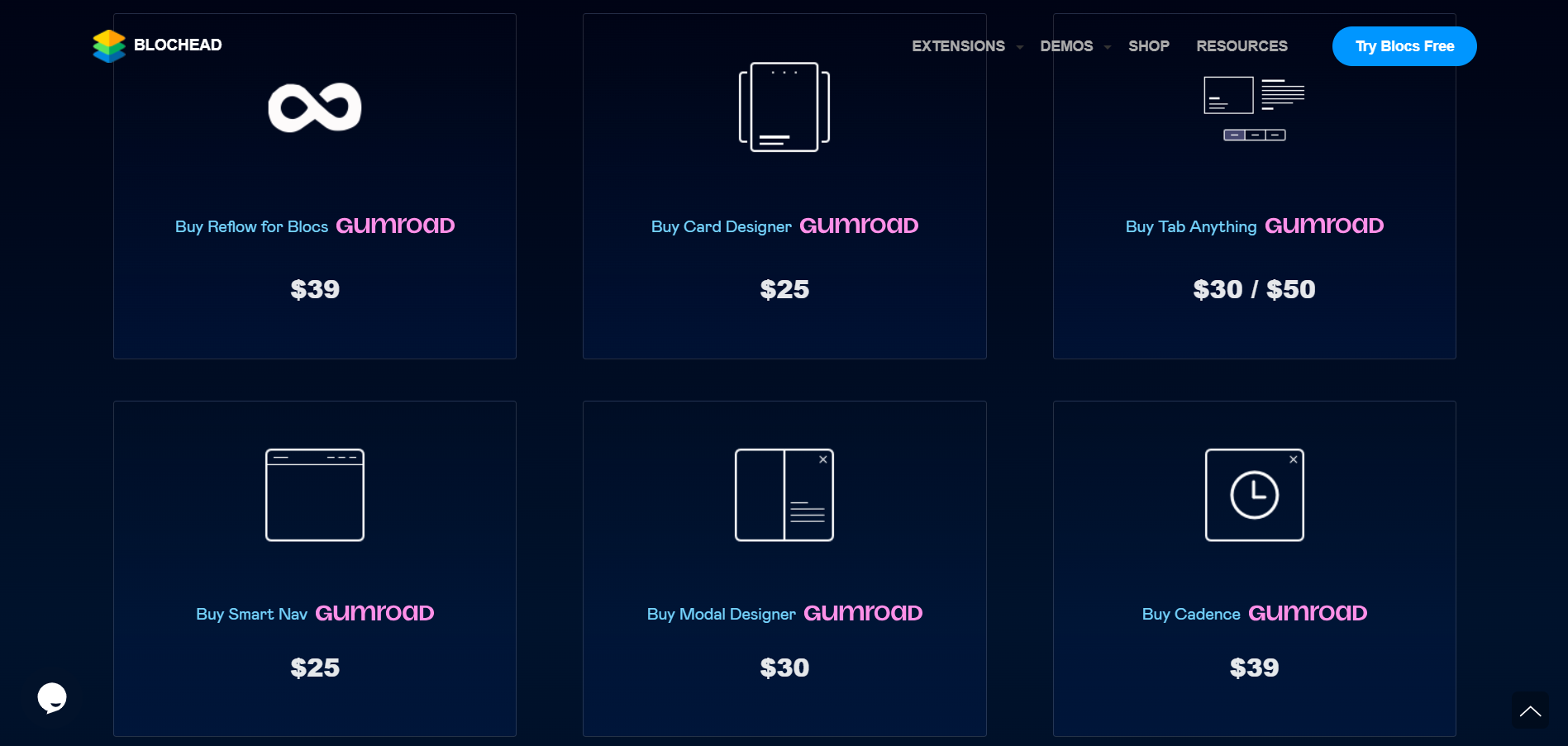
Marketing Features
Design FunctionalitiesRepresents how well each platform allows for creative design and customization of websites.Score Components:
- Template Variety (30%): Range and quality of design templates.
- Customization (30%): Flexibility and options for design alterations.
- User Interface (20%): Ease and intuitiveness of the design process.
- Responsiveness (10%): Adaptability to different devices and screen sizes.
- Innovation (10%): Unique design features and tools.
 2.6
2.6
 6.9
6.9
🏆
Overall Winner: Blocs
. Blocs stands out for its more comprehensive marketing tools, especially in email marketing and social media integration. Siter.io is strong in SEO and analytics, but lacks in email marketing and social media integration.

|

|
|
|---|---|---|
|
SEO Tools |
|
|
|
Email Marketing |
|
|
|
Blogging |
|
|
|
Social Media Integration |
|
|
|
Analytics and Reporting |
Google analytics integration |
Google analytics integration |
|
Ads and Promotions |
Facebook Pixel integration |
|
Customer Support
Customer supportEvaluates the quality and availability of support options.Score Components:
- Response time (40%): Speed of support responses.
- Support quality (30%): Effectiveness and helpfulness of the support.
- Availability (20%): Range of support channels (phone, chat, email).
- Resource richness (10%): Quality of self-help and educational materials.
 4.1
4.1
 5.1
5.1
🏆 Winner: Blocs
. In the comparison of Siter.io vs Blocs, Blocs takes the lead in customer support with a score of 5.1 compared to Siter.io’s 4.1. Blocs offers a self-service support model, relying on a comprehensive collection of articles and a community forum. While this may not be ideal for users needing direct, personalized assistance, it provides a solid foundation for resolving common issues.
Siter.io, on the other hand, provides support primarily through its extensive help center and email support. However, the lack of specified support hours and limited direct support options can leave users feeling underserved, especially when dealing with more complex problems. Despite its user-friendly design tools, Siter.io’s customer support falls short in comparison to Blocs.
Security
SecurityLooks at the platforms’ security measures and data protection.Score Components:
- Data protection (40%): Safeguards for user and customer data.
- SSL and encryption (30%): Implementation of secure connections.
- Compliance (20%): Adherence to industry security standards.
- Regular updates (10%): Frequency of security updates and patches.
 6.8
6.8
 0.0
0.0
🏆
Winner: Siter.io
. Siter.io takes a proactive approach to security, employing a zero-knowledge storage system that encrypts data both in storage and during transfer. This makes user data inaccessible even to Siter.io itself. The platform also utilizes multi-factor authentication and conducts regular security audits to further safeguard user information.
On the other hand, Blocs does not disclose any information about their private data storage and protection measures. As Blocs is primarily an offline website builder and does not offer hosting, security measures can vary widely depending on the hosting provider users choose. Therefore, in terms of security, Siter.io is the clear winner.
AI Capabilities
AI capabilitiesMeasures the effectiveness of AI-driven features and tools.Score Components:
- Automation efficiency (40%): Impact of AI on streamlining processes.
- Personalization (30%): AI-driven customization for users or customers.
- AI-Assisted design (20%): Role of AI in website design and functionality.
- Data analysis (10%): Use of AI in interpreting user data and analytics.
 0.0
0.0
 5.4
5.4

|

|
|
|---|---|---|
|
AI Builder |
|
|
|
AI Ecommerce features |
|
|
|
AI content generation |
|
Blocs incorporates an innovative AI Assistant for content generation and editing |
|
Additional AI features |
|
The AI Assistant in Blocs introduces advanced AI capabilities to the design environment, enabling users to enhance their projects with intelligent features. It offers the flexibility to choose specific AI models for tasks, ensuring that users have control over the AI’s performance and output. |
🏆 Winner: Blocs
. Blocs, with a score of 5.4, incorporates an innovative AI Assistant that enhances the user experience by allowing for the generation and editing of content directly within a Blocs project. This assistant also supports dictation and voice commands, allowing for a more intuitive and hands-free interaction with the design tool.
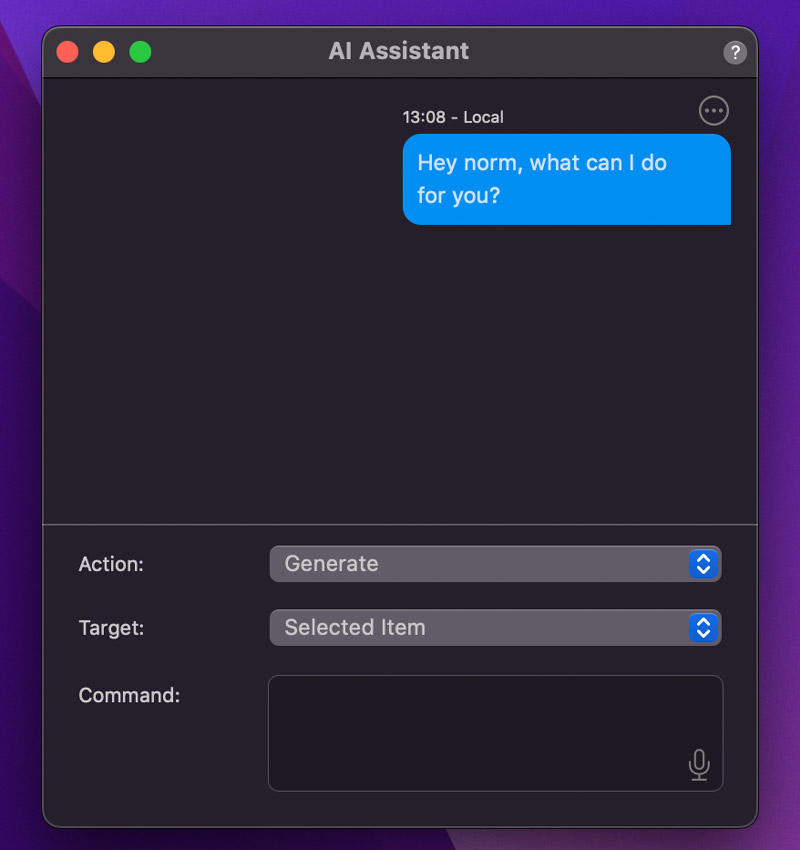
Siter.io, with a score of 0.0, does not have any AI capabilities.
User Management
User ManagementAssesses the platforms’ capabilities in managing user roles, permissions, and accessibility.Score Components:
- Role Customization (40%): Flexibility in creating and defining user roles and
permissions. - Ease of Management (30%): User interface and tools for managing users.
- Access Control (20%): Effectiveness of access control measures for different user
levels. - Scalability (10%): Ability to manage a growing number of users efficiently.
 7.1
7.1
 1.4
1.4
🏆 Winner: Siter.io
. Siter.io and Blocs have different approaches to user management.
- Siter.io focuses on its real-time collaborative features, offering varying numbers of editors depending on the plan. Each plan provides access for 2 to 6 editors who can edit and design websites, with the option to include additional editors for an extra fee.
- Blocs, on the other hand, allows only one user to build and edit a website.
This makes Siter.io a better choice for teams that require multiple editors, while Blocs is more suited for individual users.
Additional Features

|

|
|
|---|---|---|
|
SSL Certificate |
|
|
|
Custom Domain |
|
|
|
Free Custom Domain Included |
|
|
|
International Domains |
|
|
|
Mobile Responsive |
|
|
|
Page Speed |
|
|
|
Website Builder Mobile App |
|
|
|
Convert a Website To An App |
|
|
|
Website Analytics |
|
|
|
Multilingual Sites |
|
|
|
Multiple Users |
|
|
User Feedback
Overall, users appreciate Siter.io for its user-friendly interface and robust features, such as the drag-and-drop editor and customizable templates, making website building accessible to teams without coding expertise. However, there’s a consensus that the platform could improve its integration options to enhance workflow efficiency further. Nevertheless, Siter.io effectively addresses the challenge of website creation without coding skills, benefiting designers, small business owners, and individuals seeking to establish an online presence or portfolio quickly and efficiently.
Blocs website builder is praised for its intuitive drag-and-drop interface, making it accessible to users with varying levels of web development expertise. Its extensive library of templates and customization options, including the ability to add custom CSS and JavaScript, facilitates the rapid creation of diverse and visually appealing websites. However, users report encountering bugs and express a desire for more sophisticated customization features, indicating room for improvement. Overall, Blocs is valued for significantly streamlining the web design process, supported by a strong community and educational resources, despite its learning curve and occasional technical glitches.
The making of this blog
We followed a clear, step-by-step process to write and research this article.
FAQ
Which platform is better for ecommerce, Siter.io or Blocs?
Can I use Siter.io and Blocs for creating informational and business websites?
How do Siter.io and Blocs compare in terms of design functionalities and templates?
Which platform offers better ease of use?
How do the website editors of Siter.io and Blocs compare?
Which platform is more affordable?
How do Siter.io and Blocs handle hosting and website speed optimization?
Which platform has better customer support?
Are there any differences in security between Siter.io and Blocs?
Which platform has better AI capabilities?
Can I manage multiple users on Siter.io and Blocs?










